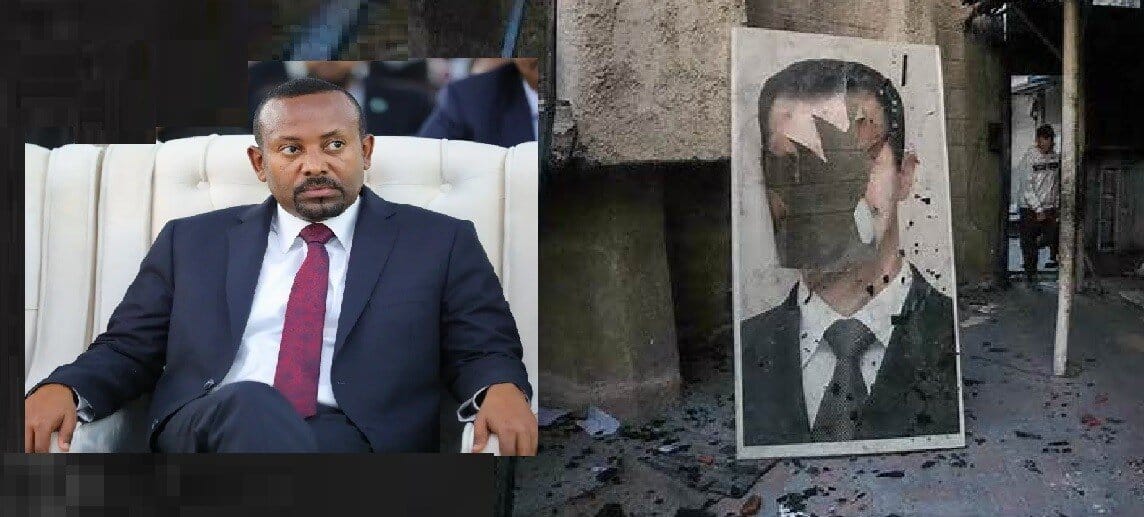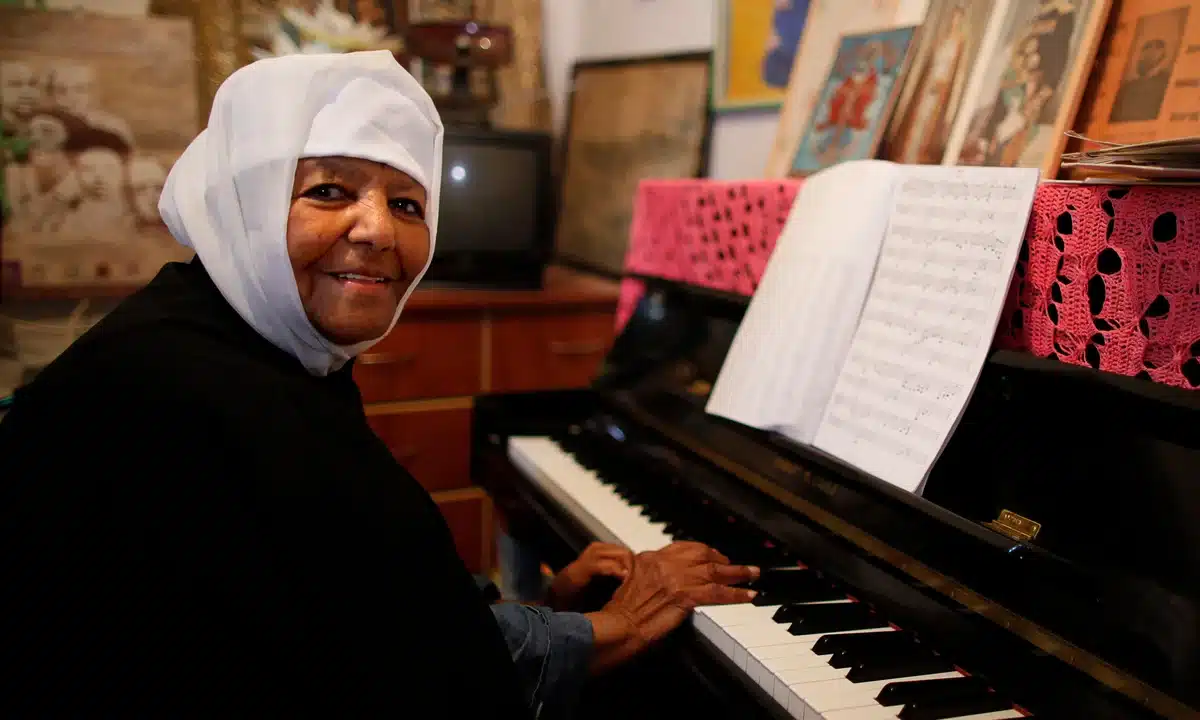Dear President Obama:
I came to America fleeing political persecution many years ago. I still carry the wounds that successive Ethiopian regimes inflicted on me personally and my family. I will spare you the tragic details. My crime was being an Oromo by birth and spirit.
I volunteered for your campaign when you first ran for office, inspired by your resume (beautifully told in your first book) and uplifting message. I understand you were hired to protect the interests of these United States, under increasingly unpredictable, arguably more dangerous and complex global conditions, making conducting an optimal foreign policy a difficult undertaking. Therefore, I did not have the illusion that the burden of the voiceless and persecuted millions around the globe would necessarily be lighter just because you ascended to the highest position of political power.
However, I expected a change of direction, if you will, from business-as-usual when it comes to the US foreign policy towards the Horn of Africa and similar other trouble spots in the world. With all due respect, Mr. President, your government’s Horn of Africa policy strikes me as poorly formulated, and will soon prove to be a costly undertaking, contributing to the agony of the common person in the region.
It is now no secret that you are using Meles Zenawi’s brutally repressive regime as a proxy to fight the spread of religious fanaticism in Somalia in particular and the region more broadly. The Ethiopian government is all too willing to work with you on this, because it gains material support which it uses to crush dissent domestically, as well as some prestige internationally as an ally of the USA. The tragedy is that this approach has not yielded positive results by any objective measure. Somalia is more of a basket case than before, and the whole region is a tinderbox that could go up in flames at any moment. Worse yet, the billions your administration has poured into the effort in the name of containing the spread of Islamic fundamentalism will tragically end up producing the opposite outcome than is desired, as more and more unemployed young people in the region inevitably begin to discover the unholy “alliance” between the US government and the Ethiopian regime.
Superficially, Ethiopia gives the impression of being a stable and growing country, particularly compared to its own recent past and much of its immediate neighborhood; therefore, you might feel justified in working with its odious regime. It is a false impression. The so-called African experts you perhaps rely on for policy making are in some cases astonishingly ill-informed and it is showing. Their view of Ethiopia’s current situation seems to be formed by their brief encounters with the tyrant (who admittedly comes across as well informed on several issues) and their twisted views of the country, formed while enjoying all the perks the country has to offer, of which there are many for a ferenji (a westerner) capable of paying the bare minimum. I have lost hope that these advisors who appear to be so much in love with Addis Ababa and in awe of Zenawi will give you the unvarnished truth about the country.
The harsh reality of Zenawi’s Ethiopia is evident if one looks just beyond the surface. It is a place where political and economic power is frighteningly concentrated in the hands of a few hand-picked persons and institutions working in concert with and for the ruling party. The tyrant apportions wins and losses on the basis of ethnicity and loyalty to his dictums. Notwithstanding the seemingly impressive growth numbers he likes to throw around, the overwhelming majority of Ethiopians go to bed hungry with no hope that their lives will improve anytime soon. They are simply shut out of the TPLF approved class of the upwardly mobile, which likes to flaunt its ill-gained wealth, perhaps giving the casual observer the mistaken impression that the country is growing and becoming more stable. Life is intolerably difficult for the plurality not connected to the regime. Inflation is simply out of control and has made the lives of the urban masses unbearable. Unemployment, particularly youth unemployment, is rampant with no expectation of lessening in the foreseeable future, forcing some of the productive population to flee the country. To make matters even worse, in the southern parts of the country, the government is forcibly removing some native population from their land and doling it away to foreign interests.
The most frustrating part of this saga is that neither you nor your principal agents seem to have learned from similar and very recent historical experiences. Remember Mubarak, the friendly tyrant who we banked on and bankrolled to keep Egypt from falling into the wrong hands? It was really embarrassing to witness how amateurish and totally unprepared your administration looked in dealing with the legitimate demands of the Arab youth. Is this how the most powerful government conducts its business? It would be prudent if the policy makers in your government listened not just to the experts with easy access to our friendly dictators, but also ordinary voices which are beginning to break through, thanks to the internet and social media. Unfortunately, it is not obvious that you have taken the lessons of the Arab Spring to heart, when it comes to the Horn of Africa.
I have to say that your invitation of Zenawi to the G8 meeting at Camp David to discuss food insecurity in the region is rather ill-informed, irrational and downright insensitive. It is a slap in the face of many that you would confer such an honor on a notorious tyrant, who has ruled Ethiopia with an iron fist, with zero accountability for his unconscionable actions. It is particularly reprehensible that he would be invited to discuss issues of food shortage, while a strong case can be made that his policies have directly contributed to the problem.
Research has demonstrated that shortages in food production can be dealt with more effectively in countries with greater electoral accountability and where independent media is allowed to operate more freely and widely. Let me just quote a prominent authority (Amartya Sen) on the topic of food insecurity in India – a country that has served as a laboratory for inquiries on these issues. He writes,”…it is not likely that India can have a famine even in years of great food problems. The government cannot afford to fail to take prompt action when large-scale starvation threatens. [Free and Independent media make] the facts known and [force] the challenge to be faced.” (Sen, Amartya, “Food Battles: Conflicts in the Access to Food,” Food and Nutrition, Oxford University Press (1984))
In contemporary Ethiopia, opposition groups, independent media and civic institutions are wiped out before they take root, under the guises of manufactured pretexts, allowing Zenawi a free reign in all spheres of life. Mugabe’s Zimbabwe looks more decent on these counts, because it tolerates some opposition and allows a somewhat free expression of independent opinion. In a mission to make the country a monopoly of TPLF Inc., Zenawi’s government is fruitlessly engaged in a scorched-earth strategy to wipe out the national liberation movements in Oromia and the Ogaden, unleashing its army on the natives with total media blackout. As you might have heard, attempts by two brave Swedish journalists to uncover what goes on in the Ogaden have landed them in the notorious Kaliti prison, each sentenced to serve eleven years in prison.
It, therefore, stands to reason that Oromia and the Ogaden are the two regional states most negatively impacted by severe food shortage, despite the fact that the former is known for its lush green fields and can more than feed the entire region if we had the right policies in place. Even more importantly, the Oromo people have a deeply embedded and celebrated democratic tradition, which values consensus as opposed to tyrannical rule, and cherishes peace and stability for man and nature alike. Despite these tremendously positive values and assets, which could be put to good uses and transform the region for the better, Oromos have been reduced to second-class citizens in their own country, forcing them to take up arms against invaders from the north with no known history of settling differences peacefully and democratically. The end result is that millions flee their ancestral land and homes, becoming dependent on food aid unwillingly.
When the Tigray Peoples Liberation Front was fighting against the military dictatorship, Tigray was ground zero for the famine that shook the conscience of all decent human beings across the planet. Today’s Tigray is hardly on the map of regions with chronic food shortages, even though it is arguably the least fertile state in the country. The plausible explanation for this welcome turn of events is that the state is very stable, thus enjoying the fruits of a government representing its interests.
Mr. President, the guy you invited to Washington to discuss food insecurity in Africa is the one individual largely responsible for the “green famine” in Ethiopia today; he cannot be the solution. It is truly absurd in the extreme that Meles can be enabled to lecture anyone that “there is no link between democracy and economic development.” It saddens me to think that you are unwittingly contributing to the crises of food insecurity in the Horn of Africa by enabling a policy that causes the problem in the first place. If your administration was committed to bringing about a lasting solution to the chronic food shortage in Ethiopia and the surrounding areas, it would condition its aid dollars on the implementation of democracy and the rule of law in the country. You would certainly not allow a notoriously tyrannical (some have argued genocidal) regime to get away with its blatantly Orwellian logic that it is working towards alleviating food insecurity in Ethiopia, even though its policies are contributing to the problem.
Sincerely,
Malkaa Guutuu
Email: malka.guutuu@gmail.com















